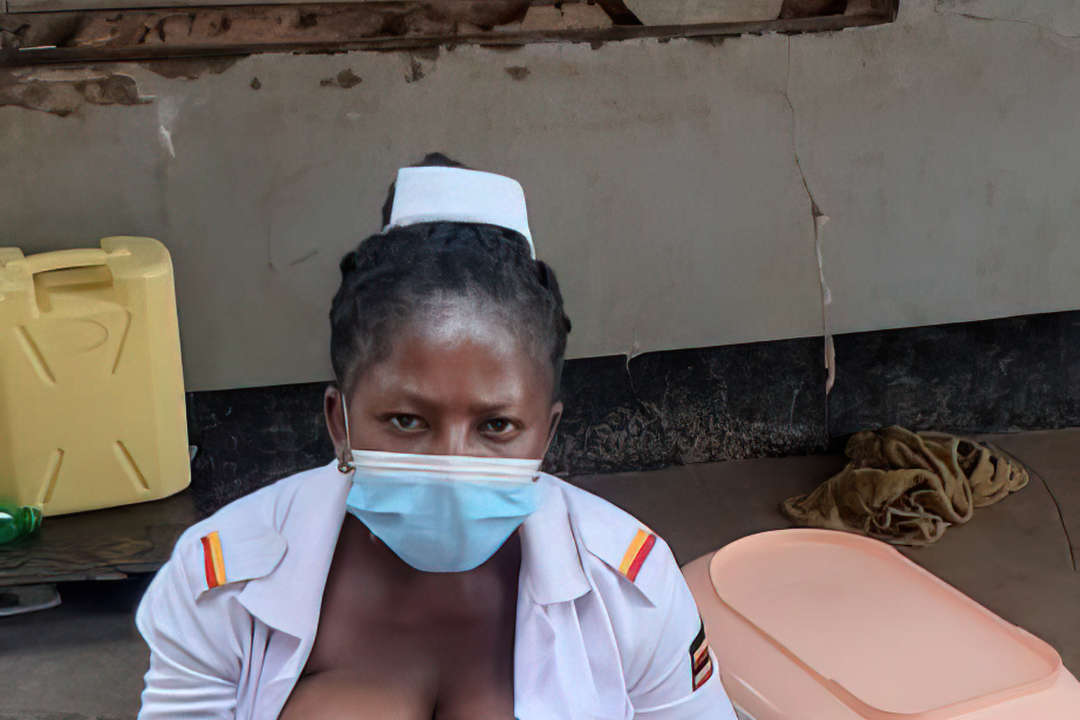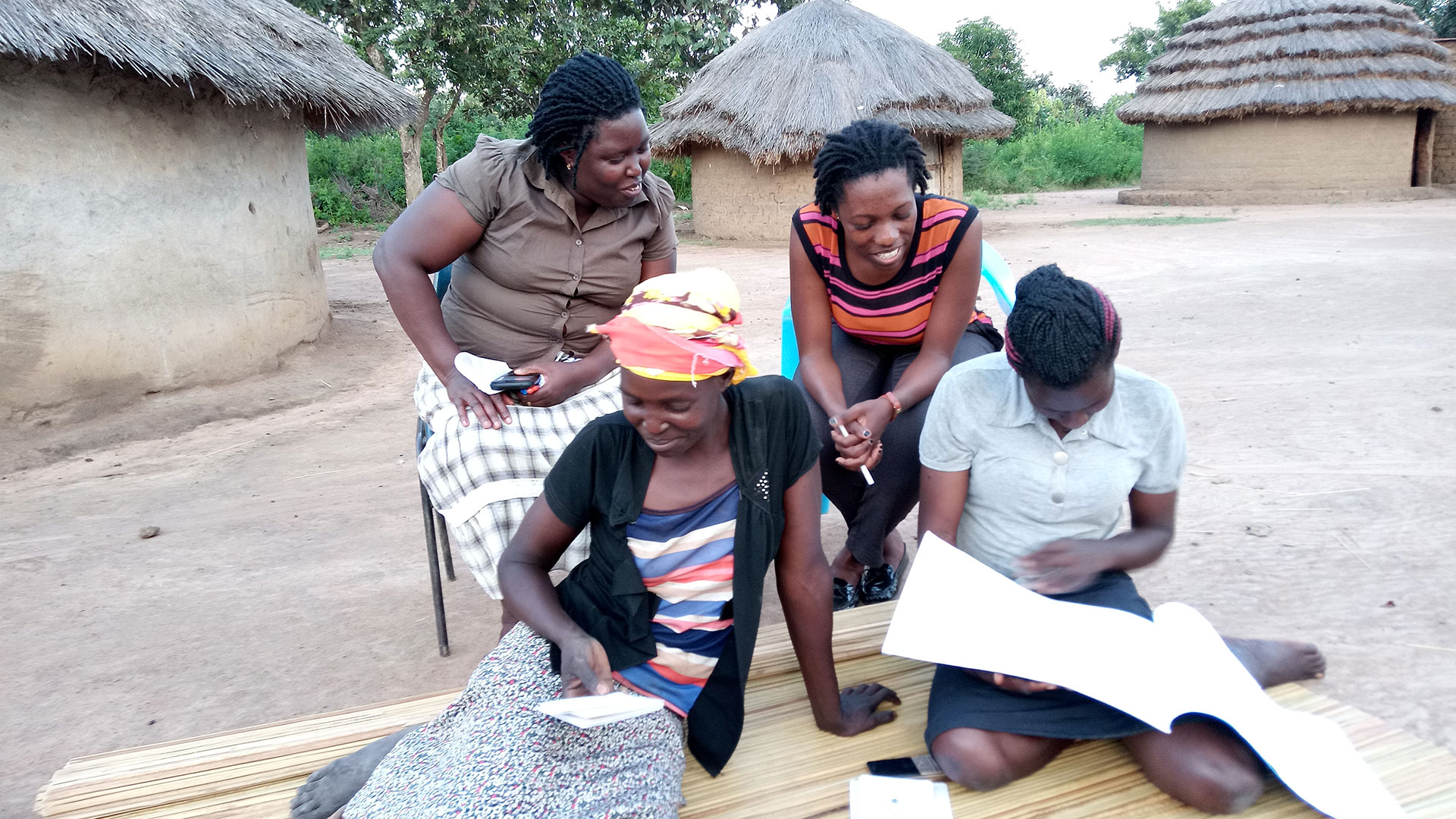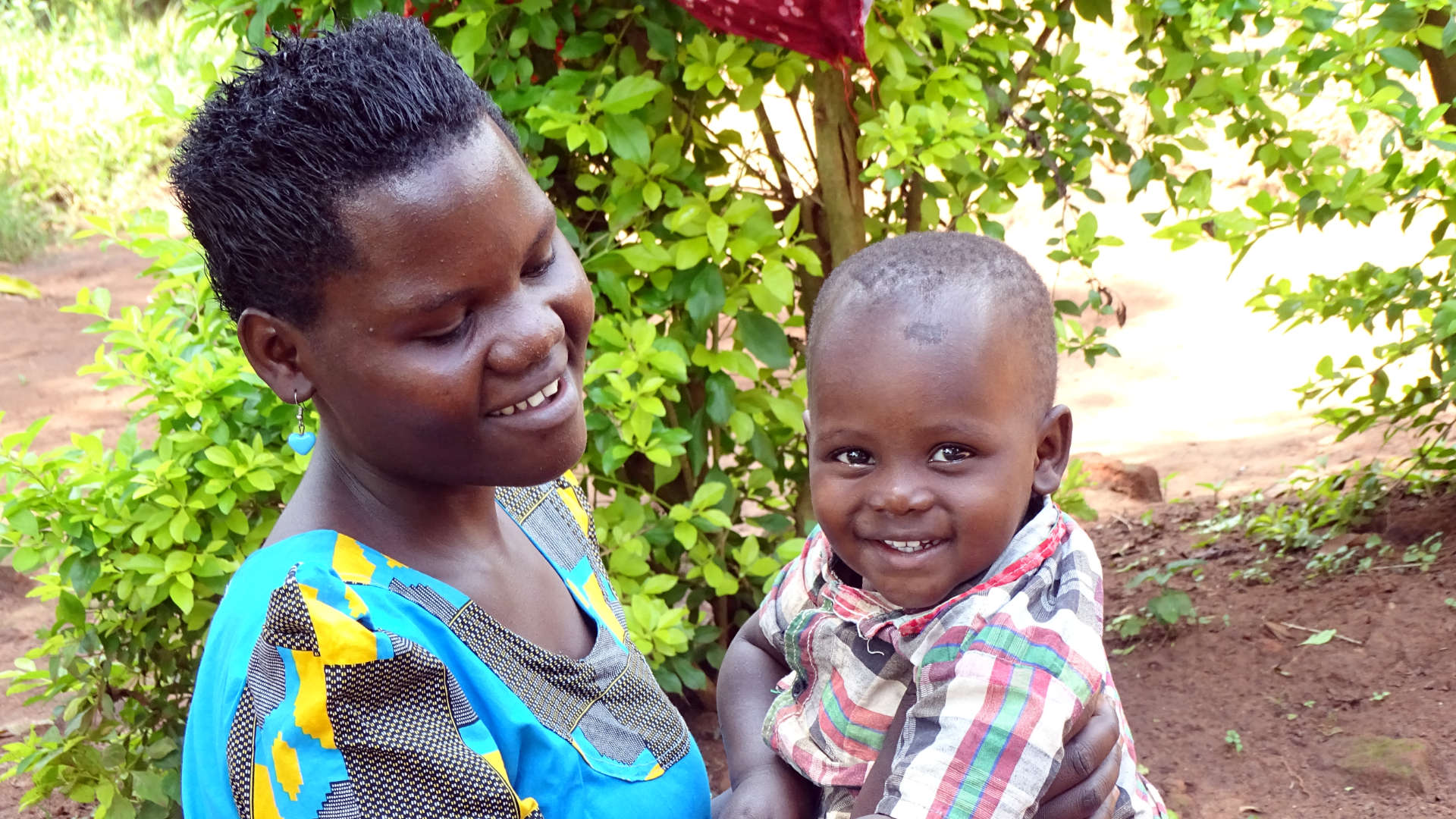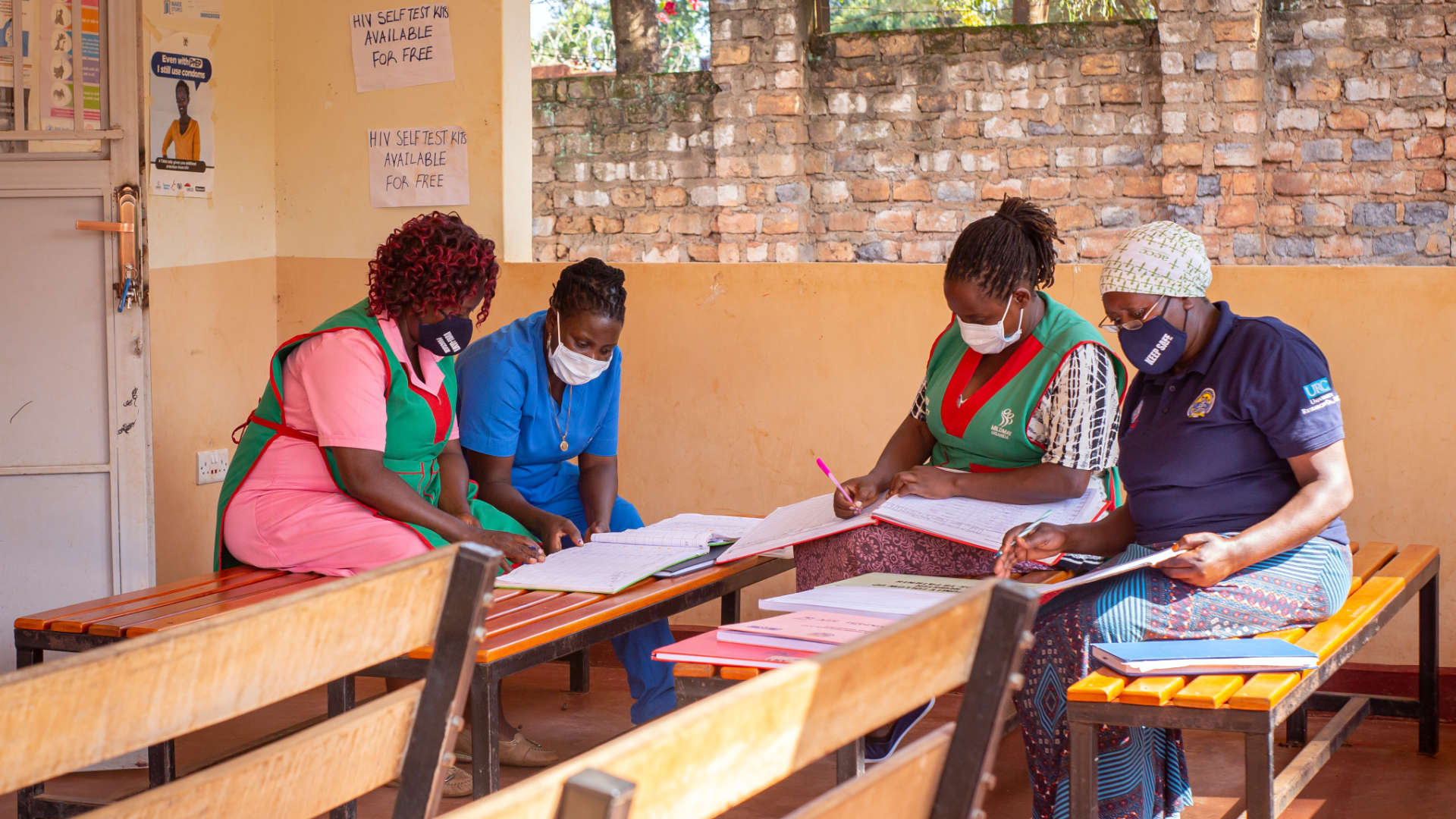Lactating mothers who test positive for COVID-19 face challenges with breastfeeding their children because of fear of infecting their infants. COVID-19 standard procedures advise social distancing as a protective measure, yet mothers must practice skin-to-skin contact when breastfeeding.
Staloser Muhindo, a nursing officer in Gulu Regional Referral Hospital’s Outpatient Department, faced a dilemma when she returned from maternity leave to her duty station in May 2021. When she took her three-month daughter to visit, the 30-year-old mother of two recalled:
“My colleagues welcomed me with hugs and held my baby.”
The following week, her colleagues tested positive for COVID-19. She developed flu symptoms and was screened for COVID-19 at the hospital lab using a rapid test for COVID 19. The test results came back negative. She drank lots of juice, ate lots of mangoes and other fruits, and returned to work.
In the third week, the flu returned, followed by a cough. “I had nasal congestion and lost my sense of smell and taste though I still had my appetite.”
The symptoms escalated to a terrible cough, shortness of breath, headache, dizziness, and difficulty in breathing. She requested another rapid test from the hospital lab. When the test result once again came back negative, she insisted on a PCR test. This time the test result was positive for COVID-19.
“When I heard the news, I feared infecting my baby,” Muhindo said. “If I died, who would take care of her? I had returned to Gulu with my 12-year-old niece. I was worried that I would infect her too.”
Educating Health Personnel on the Advantages of Breastfeeding
Muhindo is one of many mothers who continue breastfeeding despite the dangers of spreading the deadly virus to their children. Breastmilk is the ideal food for infants. It is safe, clean, and contains antibodies which help protect against illness.
The World Health Organization recommends exclusive breastfeeding up to six months of age with continued breastfeeding along with appropriate complementary foods up to two years of age or longer.
With the onset of COVID-19, the Regional Health Integration to Enhance Services in Northern Uganda (RHITES-N, Acholi) Activity quickly responded. They provided Ministry of Health guidance on the continuity of breastfeeding in the context of COVID-19 to all health workers and non-clinical staff at the Gulu Regional Referral Hospital’s antenatal care clinic, maternity ward, outpatient department, young child clinic, and children’s ward. The guidance recommended handwashing with soap and clean water and for the mother to wear a mask when breastfeeding, among other precautions. Staff in the maternity ward were mentored on the recommendations to support lactating mothers. Handouts with the same information were distributed to health workers for reference.
Persevering Despite COVID-19
With information in hand about breastfeeding during COVID-19, Muhindo returned home to start home-based care. While some neighbors accepted her when she disclosed her status, others forbade their children to go to her house. Her COVID-19 status was widely discussed at the hospital. Muhindo advised the children in her neighborhood to wear masks.
To protect her daughter from infection, Muhindo continued exclusive breastfeeding. She washed her hands frequently and cleaned the breast before feeding the baby. At first, she slept with a mask on but gave it up given her respiratory congestion. She placed the baby in an opposite direction on the bed, near the wall.
“When I woke up at night to feed her, I wore a mask before touching her. It was tough, but I persevered,” she recalls.
Addressing Infection Control
RHITES-N Acholi continued support for the hospital with onsite training of health workers and cleaners on interpersonal communication and quality improvement approaches related to infection control.
“Training of all levels of health workers helped alleviate fears among the health workers who then shared the information with patients including lactating mothers,” said Florence Akello, RHITES-N, Acholi’s Nutrition Advisor.
To encourage hand washing and support the isolation centers, RHITES-N Acholi distributed hand washing equipment to all entry points and wards, including the COVID-19 treatment units.
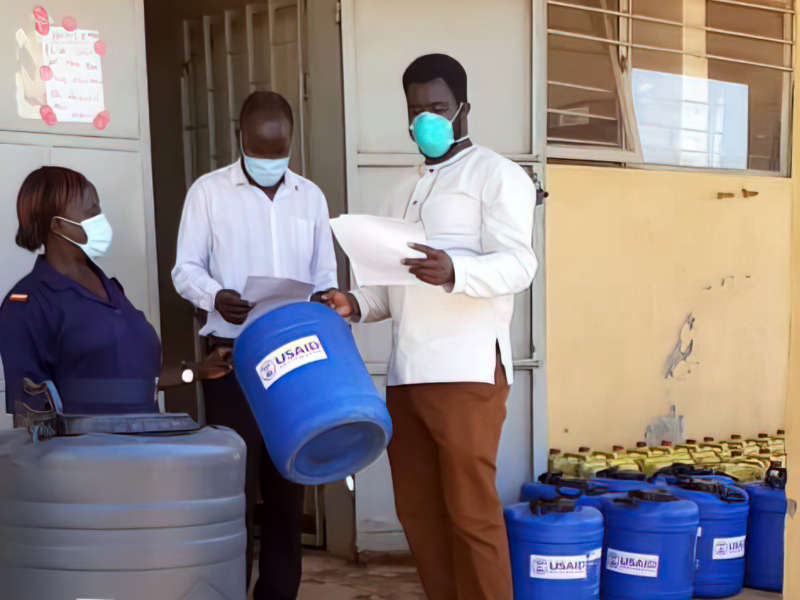
“With the growing number of persons being treated for COVID-19 at the hospital’s isolation center, the health facility managed to boil drinking water daily and encourage regular hand washing,” Akello said.
RHITES-N, Acholi provided 10 50-liter drums with tap and metallic stands, 3,000 water purification tablets, 4,000 disposable cups, and five 20-liter containers of liquid soap.
Success for Mom and Baby
Today, Muhindo continues exclusive breastfeeding for her 4-month-old baby who remains free of the virus. Muhindo was declared free of the virus after a third COVID-19 test in July 2021. Perseverance paid off for both Muhindo and her baby, who continues to benefit from breastfeeding.
